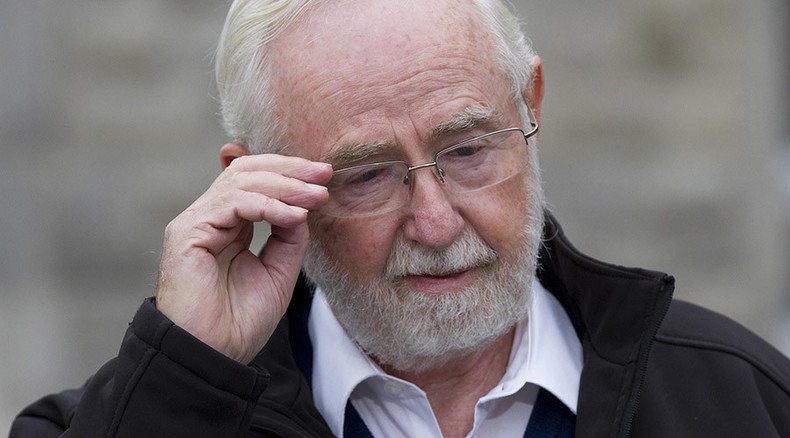Japanese, Canadian physicists receive Nobel Prize for pinning mysterious neutrino particles

The 2015 Nobel Prize for Physics has been awarded to two researchers working independently, in Canada and Japan, on the discovery of neutrino oscillations, proving that elusive subatomic particles known as neutrinos have mass.
Takaaki Kajita and Arthur McDonald won for their efforts in demonstrating that neutrinos change identities, known as “flavors,” the academy said.
Neutrinos are one of the basic particles that make up matter. “After photons, the particles of light, neutrinos are the most numerous in the entire cosmos. The Earth is constantly bombarded by them,” the academy said in its statement announcing the prize.
”Kind of unbelievable!” Takaaki Kajita on being awarded the 2015 #NobelPrize in Physics https://t.co/4GlcphyGjc
— The Nobel Prize (@NobelPrize) October 6, 2015The neutrinos transform between three types: electron-type, muon-type and tau-type. In order to change from one state to the other neutrinos need to have mass, which challenges the belief that that they were massless.
The discovery had “changed our understanding of the innermost workings of matter and can prove crucial to our view of the universe,” the Royal Swedish Academy of Sciences said.
Congratulations to #queensu Prof Emeritus Art McDonald, winner of an @NobelPrize for Physics
http://t.co/cxsPcSM11tpic.twitter.com/9phjYB8FrQ
— Queen's University (@queensu) October 6, 2015Kajita is director of the Institute for Cosmic Ray Research at the University of Tokyo and McDonald is professor emeritus at Queen’s University in Kingston, Canada.
“When I took the phone call and heard that they’d decided on the prize, it was a huge honor. I’m still so shocked I don’t really know what to say,” Kajita told said at a news conference in Tokyo.
”It’s ironic, in order to observe the sun you have to go kilometers under ground.” Arthur McDonald: https://t.co/HEt4wAqa2c#NobelPrize
— The Nobel Prize (@NobelPrize) October 6, 2015Kajita described his work as demonstrating a new kind of physics beyond the Standard Model of fundamental particles, which requires for neutrinos to be massless. Kajita helped prove in 1998 that neutrinos locked inside the Super-Kamiokande detector in Japan experienced a metamorphosis in the atmosphere.
McDonald’s contribution included a 2001 discovery that neutrinos from the sun also changed their identities. The Canadian scientists completed his work at the Sudbury Neutrino Observatory, SNOLAB.
Let's be proud of our fellow Arthur B. McDonald for his @NobelPrize in Physics, an accomplished scientist and Officer of the #OrderofCanada.
— David Johnston (@GGDavidJohnston) October 6, 2015“Yes, there certainly was a Eureka moment in this experiment when we were able to see that neutrinos appeared to change from one type to the other in traveling from the Sun to the Earth,” McDonald told reporters by telephone from his home in Kingston. Neutrinos are “particles that we don’t know how to subdivide any further,” McDonald said.
“By our measurements we were able to confirm with great accuracy calculations of how the Sun burns by fusion processes,” McDonald said.
There is still work left to be done in this field, including learning the exact mass of the neutrino, and whether more than the currently known three types exist.
The neutrino scientists spent most of their research time deep in the ground because they need to keep away from interference from cosmic and other radiation.
“Many neutrinos are created in reactions between cosmic radiation and the Earth’s atmosphere. Others are produced in nuclear reactions inside the Sun. Thousands of billions of neutrinos are streaming through our bodies each second. Hardly anything can stop them passing; neutrinos are nature’s most elusive elementary particles,” the academy said in its statement.
Previous winners of the Nobel Prize for Physics include Albert Einstein, Niels Bohr, Werner Heisenberg and Marie Curie.
The Nobel Prize for Medicine in medicine was awarded Monday to Tu Youyou, William Campbell and Satoshi Omura for their work in developing treatments for diseases including malaria.
Other winners for chemistry, literature and peace categories will be announced later this week. The economics prize will be revealed on October 12.












